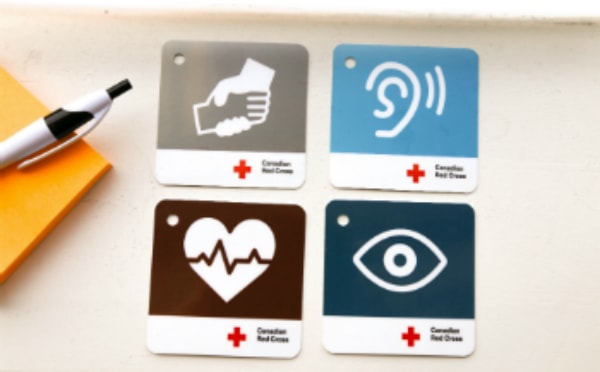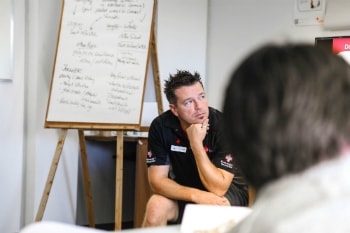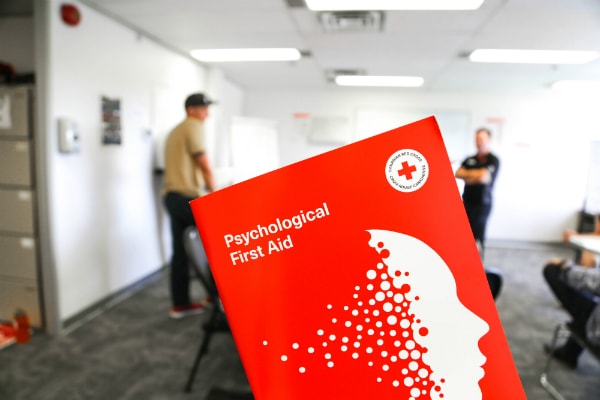What do you think of when you hear 'first aid'? Cuts, blood, and bruises - any number of physical injuries may come to mind. Typically, first aid provides the skills to physically help save a life. However, first aid for the mind is just as important as first aid for the body. Learning psychological first aid skills for mental health crises could also save a life. This program is being introduced and offered by Canadian Red Cross training partners and online across Canada.

Don Marentette, Director of First Aid Programs at the Canadian Red Cross, recalls “A couple years ago, you would have been told to suck it up, your back’s not hurting, you’re not wearing a sling, what’s the problem? Psychological First Aid allows for a holistic approach to health, where individuals learn how to care for themselves and others’ psychosocial wellness.”
Psychological First Aid training allows individuals to build a self-care plan through understanding and identifying how loss, grief, and stress affect them and in turn how to deal with it. This training also explores how they can care for others by identifying what it looks like when their friend or loved one is experiencing distress. The program focuses on four components including: look, listen, link and live. This means awareness that there is a problem, listening to yourself or others, and linking to resources in your community so that you can live fully.

Christian Clavelle, President of Canadian First-Aid Training, a Red Cross training partner in the Ottawa area, has been part of the team spearheading the development of the Psychological First Aid program at the Canadian Red Cross. Christian shares how, as an instructor, psychological first aid has helped him significantly through the loss of his two younger siblings. 
“This thing actually works, it’s straightforward and there’s a lot of common sense in the training that has helped me to re-group. I had a lot of resiliency before as a person, because everybody goes through stressors, but these traumatic events took me off my game. What I found is that psychological first aid training really helped me focus on what I needed to do. Simple things like: sleeping, taking care of my self, drinking enough water, getting exercise, and focusing on my favourite pastimes and hobbies. Doing all those things has really been helpful... it helped me get back to living.”
Psychological first aid can be used before, during, or after a crisis event. This training is for everyone, from workplaces, to professional responders, to the general public. If you are interested in taking Psychological First Aid training, there are two online non-certification courses, as well as an in-class 7 to 12-hour certification course. It is recommended to do a blended learning style where the two online courses are completed prior to the in-class course component. In-class learning is case-based, where you are taught based on your needs and what is relevant in your life. Sign up for a Psychological First Aid course today!

